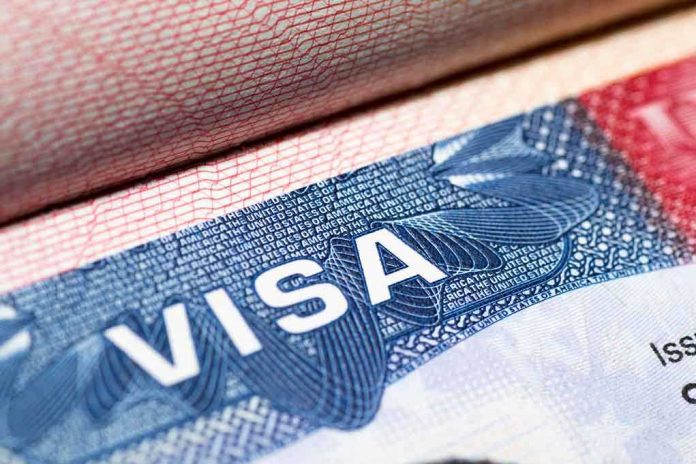
A massive visa crackdown targets over 6,000 students, raising national security concerns and sparking debate over civil liberties.
Story Highlights
- Over 6,000 student visas revoked for legal violations and alleged terrorism support.
- Increased scrutiny on political activities, especially pro-Palestine protests.
- Critics raise concerns about due process and civil liberties.
- Legal challenges emerge as institutions demand transparency.
Visa Crackdown and National Security
In 2025, the U.S. State Department, led by Secretary of State Marco Rubio under President Trump, revoked more than 6,000 student visas. These actions were part of a broader initiative to enforce immigration laws and enhance national security. The revoked visas were primarily due to visa overstays, legal violations such as assault and burglary, and alleged support for terrorism. This significant measure is aimed at protecting American citizens and institutions from threats posed by foreign nationals.
Additionally, students involved in pro-Palestine protests or those from countries deemed security risks are facing increased scrutiny. This aligns with executive orders signed in January 2025, which directed agencies to enhance vetting procedures. The administration argues that these steps are necessary to safeguard U.S. interests, particularly in light of escalating global tensions and domestic campus activism.
Legal and Political Controversy
While the administration frames these measures as essential for national security, critics argue they infringe on civil liberties and lack due process. Legal challenges have been filed by affected students and institutions, with some courts reinstating student statuses. Advocacy groups are demanding transparency and accountability, citing arbitrary enforcement and potential violations of constitutional rights. These actions have ignited a debate over the balance between national security and individual freedoms.
Senator Jeff Merkley criticized the policy, labeling it a “fundamental attack on freedom.” The American Council on Education (ACE) and higher education associations are also voicing concerns, urging the State Department and DHS to provide urgent briefings and clarify the legal basis for these revocations.
Implications for International Relations and Education
The revocation of student visas has significant implications for U.S. higher education and international relations. The loss of legal status forces thousands of students to leave the country, disrupting academic programs and research. This crackdown may deter international students from enrolling in U.S. institutions, impacting university finances and the nation’s global competitiveness.
Rubio’s State Department yanks more than 6K student visas due to assault, burglary, support for terrorism https://t.co/xB0aDKxnte #FoxNews Students… on visa's, who break the law are NOT entitled "due process & freedom's of American citizenship! Merkley…another DNC Marxist.
— Sven Sorvik (@svensorvik) August 18, 2025
Furthermore, targeted actions against Chinese students, especially those linked to the Chinese Communist Party, could strain diplomatic relations. As legal and political debates continue, the broader impact on U.S. education and diplomacy remains to be seen. The administration’s approach underscores a commitment to national security, but the consequences of these policies could be far-reaching and enduring.
Sources:
ACE, Apr 7, 2025: Higher ed associations demand answers, cite due process concerns.



